Broker Fee Dilemma
Balancing National Concerns with Colorado Real Estate Agents' Insights

A jury trial currently in session in Kansas City, MO, is poised to challenge a fundamental aspect of the U.S. real estate market — broker fees.
National Scenario:
This trial, part of two antitrust class-action lawsuits against top-tier brokerage firms and the National Association of Realtors (NAR), threatens to unsettle the established trade group’s influence on the industry, potentially altering the way Americans purchase homes.
Two implicated parties, Anywhere Realty and Re/Max, have already resolved both suits, diminishing their ties with the NAR and compensating a total of $139 million in damages. Parallelly, the Department of Justice is reportedly mulling over antitrust action against the NAR, as reported by Bloomberg.
The Core Debate:
At the heart of the matter are broker fees, especially the payment from the seller to the buyer’s agent.
Per NAR guidelines, which agents must comply with to access the majority of local real estate databases, the seller foots the fee, which is then shared between the seller’s and buyer’s real estate agents. In these listings, a fee offer from sellers is mandatory (even if it’s zero) — discernible to buyers’ agents, albeit typically not to the prospective buyers.
Representing the sellers of over 260,000 homes in Missouri, Kansas, and Illinois, the plaintiffs argue this system essentially orchestrates a conspiracy to sustain high home prices.
By The Numbers:
In 2020, Americans expended over $85 billion on residential real estate commissions, highlighted by the DOJ during a preceding antitrust scrutiny.
While the NAR recently indicated the fee could dip to $0, studies manifest that the fees predominantly remain steady. The commission structure equates to “collusion,” the lead plaintiff attorney in the Missouri case conveyed to Bloomberg.
Broader Outlook:
Critics have long chastised the NAR and this system for boosting home prices — thereby misaligning the objectives of the buyer and their agent.
Agents garner more if the buyer disburses more. “From a consumer angle, the industry lacks logic,” commented Steve Brobeck, a senior fellow at the Consumer Federation of America, who has delved into this issue extensively.
Brobeck draws a comparison between the broker fee on a $500,000 house, which would be $30,000, to the price of a car. “It’s astonishing.”
Digital Shifts:
The internet has revolutionized nearly every marketplace across the nation, generally driving down costs — like enabling zero-fee stock trading.
Similarly, home-buying has evolved with the internet: Prospective buyers now browse online listings and might not engage a broker until they pinpoint a specific home. Yet, despite the boom in online listings since the mid-aughts, fees remain static — averaging about 5%, as per data from Housing Wire.
The Other Side:
In a communication to Axios, an NAR representative defended its rules and system, asserting they benefit both consumers and the market. They emphasized that “compensation is always negotiable,” and commissions vary with the market.
Arguing against rule amendments, they claim such changes “would endanger consumers’ equal access to homes for sale, affordability, and the overall stability of the housing market,” referencing a paper by a George Washington University business school professor and a fellow at the Urban Institute.
NAR’s Rebuttal:
In a communication to Axios, an NAR representative defended its rules and system, positing they benefit both consumers and the market. They underscored that “compensation is always negotiable,” and commissions vary with the market.
Arguing against modifying the rules, they assert such changes “would endanger consumers’ equal access to homes for sale, affordability, and the overall stability of the housing market,” referencing a paper by a George Washington University business school professor and a fellow at the Urban Institute.
In Colorado:
The discussion around broker fees is crucial as it directly ties to how real estate agents earn their living. In Colorado, the typical realtor fees hover around 5.52%, slightly above the national average of 5.37%1. How these fees are structured can impact an agent’s earnings significantly.
Let’s break down how it works: say a house sells for $500,000 with a 5.52% commission fee. That’s $27,600, which gets split among the listing agent, buyer’s agent, and their respective brokerages. Now, within this split, an agent’s share can vary. Some agents in Colorado may pay a flat fee per closing to their brokerage, while others might part with a substantial chunk of their commission, sometimes more than half2.
Looking Ahead:
The legal discussions and potential changes in broker fee structures are something every agent is likely watching closely. Any shifts could mean re-evaluating their business models to continue providing value to their clients while ensuring a fair earning.
In essence, the broker fee discussions aren’t just legal or industry debates; they’re about the livelihoods of real estate agents, their ability to serve clients effectively, and the overall health and competitiveness of the real estate market in places like Colorado and beyond.
Share this Post



QUICK LINKS
7710 N. Union Blvd, Suite 100K
Colorado Springs, CO 80920
(719) 938-1320
The real estate listings and related content featured on Springs.RealEstate are provided solely for the personal, non-commercial use of website visitors, with the purpose of assisting them in identifying potential properties they may be interested in purchasing. The offering of compensation is extended only to registered members of the PPMLS. While we strive to maintain the accuracy of the information presented, it is not warranted or guaranteed by the Pikes Peak REALTOR® Services Corp or REcolorado.
Information on this site is based on the Internet Data Exchange (IDX) program and is intended exclusively for the personal, non-commercial use of our consumers. It is prohibited to use this information for any purpose other than to identify prospective properties for potential purchase. We ensure that listing information is current and updated daily, however, its accuracy is not guaranteed.
All Rights Reserved | Website Powered by National Association of REALTORS® and maintained by CREATIVE INSTINCTS OF COLORADO
Marcus Reynolds and Marissa Robson are Real Estate Agents with The Polaris Group in Colorado Springs. For sellers, Marcus and Marissa offer custom strategies to effectively market properties to the right audience. Buyers and investors benefit from Marcus and Marissa's deep market insight, ensuring a smooth journey in finding ideal homes or investment opportunities. Explore the website to search for homes, or connect with Marcus and Marissa to embark on a personalized real estate adventure.
This website is owned, designed, and maintained by Creative Instincts of Colorado, LLC Please see our Privacy Policy to see how we store and collect information.
Marissa Robson License FA100095019
Marcus Reynolds License FA100101306






